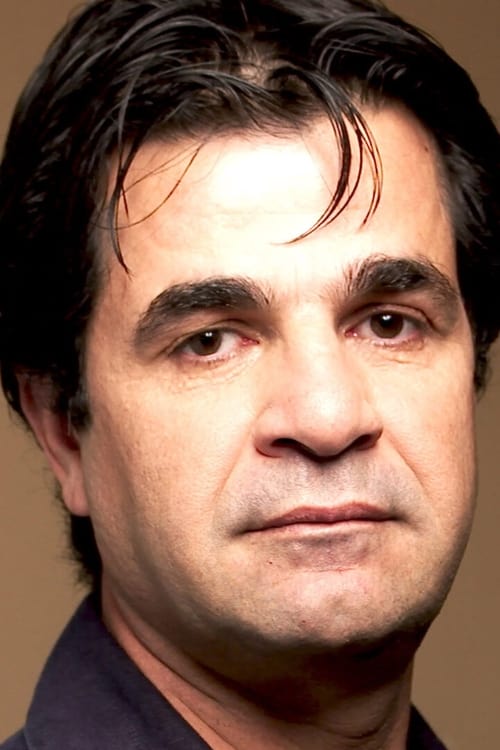
Self
On May 18, 2017, the Busan International Film Festival’s Program Director Kim Jiseok died suddenly and unexpectedly from a heart attack while on a business trip to the Cannes Film Festival. In the face of his unexpected demise, his old friends and colleagues in the film industry recall what tormented him in his last days.

Producer
Iranian director Jafar Panahi, who has been barred from leaving the country, arrives at a village on the Iran-Turkey border to supervise a film based on a real-life couple seeking passports to Europe being shot in Turkey, but both his stay and the production run into trouble.

Jafar Panahi
Iranian director Jafar Panahi, who has been barred from leaving the country, arrives at a village on the Iran-Turkey border to supervise a film based on a real-life couple seeking passports to Europe being shot in Turkey, but both his stay and the production run into trouble.

Writer
Iranian director Jafar Panahi, who has been barred from leaving the country, arrives at a village on the Iran-Turkey border to supervise a film based on a real-life couple seeking passports to Europe being shot in Turkey, but both his stay and the production run into trouble.

Director
Iranian director Jafar Panahi, who has been barred from leaving the country, arrives at a village on the Iran-Turkey border to supervise a film based on a real-life couple seeking passports to Europe being shot in Turkey, but both his stay and the production run into trouble.
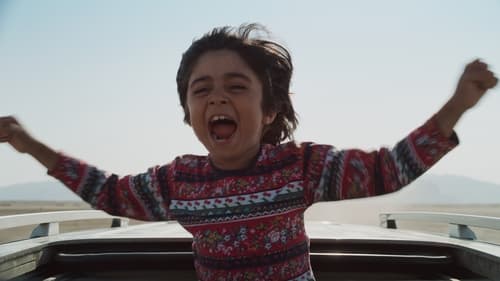
Producer
A chaotic family is on a road trip across a rugged landscape. In the back seat, Dad has a broken leg, Mom tries to laugh when she's not holding back tears, and the youngest keeps exploding into car karaoke. Only the older brother is quiet.

Featuring seven stories from seven auteurs from around the world, the film chronicles this unprecedented moment in time, and is a true love letter to the power of cinema and its storytellers.

Director of Photography
Featuring seven stories from seven auteurs from around the world, the film chronicles this unprecedented moment in time, and is a true love letter to the power of cinema and its storytellers.

Writer
Featuring seven stories from seven auteurs from around the world, the film chronicles this unprecedented moment in time, and is a true love letter to the power of cinema and its storytellers.

Executive Producer
Featuring seven stories from seven auteurs from around the world, the film chronicles this unprecedented moment in time, and is a true love letter to the power of cinema and its storytellers.

Director
Featuring seven stories from seven auteurs from around the world, the film chronicles this unprecedented moment in time, and is a true love letter to the power of cinema and its storytellers.

Director
A portrait of the Panahi family's matriarch as the pandemic makes it more difficult for intergenerational connection.

A portrait of the Panahi family's matriarch as the pandemic makes it more difficult for intergenerational connection.

Self
Secretly filmed in Iran for over two years, Nasrin is an immersive portrait of human rights activist and political prisoner Nasrin Sotoudeh and Iran’s remarkably resilient women’s rights movement. Nasrin has long fought for the rights of women, children, LGBT prisoners, religious minorities, journalists and artists, and those facing the death penalty. She was arrested in 2018 for representing women who protested Iran’s mandatory hijab law and sentenced to 38 years in prison, plus 148 lashes. Narrated by Academy Award-winning actress Olivia Colman and featuring acclaimed filmmaker Jafar Panahi, Nobel Peace Prize laureate Shirin Ebadi, journalist Ann Curry, exiled women’s rights activist Mansoureh Shojaee, and Nasrin Sotoudeh.
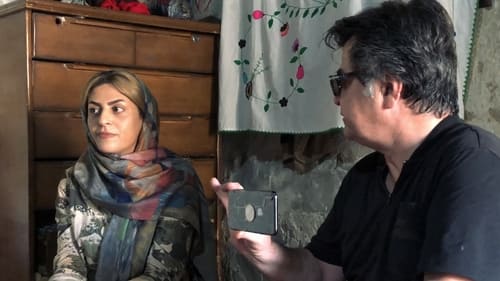
Director of Photography
Jafar Panahi sets out to find a young woman with a golden voice that has been forbidden to sing by Iranian authorities. Social films are inspired by the director's "sensations" and "experiences." These sensations/experiences erode the soul of the filmmaker until they can be released into a movie. This is the reason why a filmmaker cannot be told to make or not make a movie. Telling them not to film will never breach their resistance; neither will it close all the paths leading to making a movie. The opposite is equally true: if they are commissioned a movie, something resists inside them and prevents them from making it!

Self
Jafar Panahi sets out to find a young woman with a golden voice that has been forbidden to sing by Iranian authorities. Social films are inspired by the director's "sensations" and "experiences." These sensations/experiences erode the soul of the filmmaker until they can be released into a movie. This is the reason why a filmmaker cannot be told to make or not make a movie. Telling them not to film will never breach their resistance; neither will it close all the paths leading to making a movie. The opposite is equally true: if they are commissioned a movie, something resists inside them and prevents them from making it!

Director
Jafar Panahi sets out to find a young woman with a golden voice that has been forbidden to sing by Iranian authorities. Social films are inspired by the director's "sensations" and "experiences." These sensations/experiences erode the soul of the filmmaker until they can be released into a movie. This is the reason why a filmmaker cannot be told to make or not make a movie. Telling them not to film will never breach their resistance; neither will it close all the paths leading to making a movie. The opposite is equally true: if they are commissioned a movie, something resists inside them and prevents them from making it!

Director
From an Iranian village to the Palais Garnier, from a hospital in Villejuif in the South of Algeria, voices are raised ... Four filmmakers, Julie Deliquet, Karim Moussaoui, Sergei Loznitsa and Jafar Panahi film songs of women and evoke in their own way, the world in which each of them lives.

Producer
Filmmaker Jafar Panahi and actor Behnaz Jafari travel to a tiny village after receiving a plea for help from a girl whose family has forbidden her from studying acting. Amusing encounters abound, but they soon discover that the local hospitality is rivaled by the desire to protect old traditions.

Jafar Panahi
Filmmaker Jafar Panahi and actor Behnaz Jafari travel to a tiny village after receiving a plea for help from a girl whose family has forbidden her from studying acting. Amusing encounters abound, but they soon discover that the local hospitality is rivaled by the desire to protect old traditions.

Writer
Filmmaker Jafar Panahi and actor Behnaz Jafari travel to a tiny village after receiving a plea for help from a girl whose family has forbidden her from studying acting. Amusing encounters abound, but they soon discover that the local hospitality is rivaled by the desire to protect old traditions.

Director
Filmmaker Jafar Panahi and actor Behnaz Jafari travel to a tiny village after receiving a plea for help from a girl whose family has forbidden her from studying acting. Amusing encounters abound, but they soon discover that the local hospitality is rivaled by the desire to protect old traditions.

Director
Jafar Panahi and fellow Iranian director Majid Barzegar take a 20-minute drive to Kiarostami’s grave, during which time “the two friends speak appropriately of cinema, but also censorship and festivals, police power and ideology.”

himself
Jafar Panahi and fellow Iranian director Majid Barzegar take a 20-minute drive to Kiarostami’s grave, during which time “the two friends speak appropriately of cinema, but also censorship and festivals, police power and ideology.”
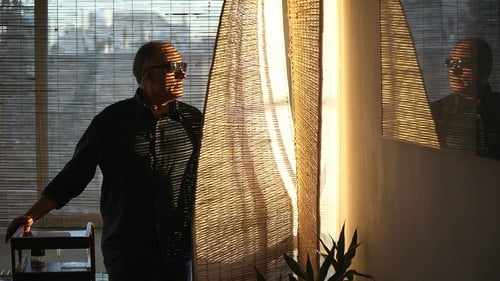
Himself
Kiarostami as we have never really known him before, despite the transformative power of his many movies. Filmmaker and close friend Samadian avoids the talking heads of so many artistic memoirs to offer more candid clips of Kiarostami the man: lover of poetry, convivial with friends, engaging landscapes on and off screen, laughing with other artists. The artist and visionary emerges more clearly but so does a loving, wondrous man whom we will miss now as much as the auteur.

Screenplay
Mr. Safari, an 80-year-old pensioner, lives alone and without direction. When his son, living abroad, tries to arrange for his elderly father to visit him, Mr. Safari becomes dangerously obsessed with a local female travel agent who is hired to help. Co-written by acclaimed filmmaker Jafar Panahi (Crimson Gold, Taxi), this provocative story delivers a quietly powerful statement about loneliness and those who get left behind in contemporary Tehran.

Editor
A yellow cab is driving through the vibrant and colourful streets of Tehran. Very diverse passengers enter the taxi, each candidly expressing their views while being interviewed by the driver who is no one else but the director Jafar Panahi himself. His camera placed on the dashboard of his mobile film studio captures the spirit of Iranian society through this comedic and dramatic drive…

Director of Photography
A yellow cab is driving through the vibrant and colourful streets of Tehran. Very diverse passengers enter the taxi, each candidly expressing their views while being interviewed by the driver who is no one else but the director Jafar Panahi himself. His camera placed on the dashboard of his mobile film studio captures the spirit of Iranian society through this comedic and dramatic drive…

Music
A yellow cab is driving through the vibrant and colourful streets of Tehran. Very diverse passengers enter the taxi, each candidly expressing their views while being interviewed by the driver who is no one else but the director Jafar Panahi himself. His camera placed on the dashboard of his mobile film studio captures the spirit of Iranian society through this comedic and dramatic drive…

Producer
A yellow cab is driving through the vibrant and colourful streets of Tehran. Very diverse passengers enter the taxi, each candidly expressing their views while being interviewed by the driver who is no one else but the director Jafar Panahi himself. His camera placed on the dashboard of his mobile film studio captures the spirit of Iranian society through this comedic and dramatic drive…

Screenplay
A yellow cab is driving through the vibrant and colourful streets of Tehran. Very diverse passengers enter the taxi, each candidly expressing their views while being interviewed by the driver who is no one else but the director Jafar Panahi himself. His camera placed on the dashboard of his mobile film studio captures the spirit of Iranian society through this comedic and dramatic drive…

Self
A yellow cab is driving through the vibrant and colourful streets of Tehran. Very diverse passengers enter the taxi, each candidly expressing their views while being interviewed by the driver who is no one else but the director Jafar Panahi himself. His camera placed on the dashboard of his mobile film studio captures the spirit of Iranian society through this comedic and dramatic drive…

Director
A yellow cab is driving through the vibrant and colourful streets of Tehran. Very diverse passengers enter the taxi, each candidly expressing their views while being interviewed by the driver who is no one else but the director Jafar Panahi himself. His camera placed on the dashboard of his mobile film studio captures the spirit of Iranian society through this comedic and dramatic drive…

Producer
A man, his dog, a young woman and a filmmaker in a house by the Caspian Sea. All three are wanted, but they are also in search of each other. Thus begins an absurd game in which reality and fiction merge.

Editor
A man, his dog, a young woman and a filmmaker in a house by the Caspian Sea. All three are wanted, but they are also in search of each other. Thus begins an absurd game in which reality and fiction merge.

Screenplay
A man, his dog, a young woman and a filmmaker in a house by the Caspian Sea. All three are wanted, but they are also in search of each other. Thus begins an absurd game in which reality and fiction merge.

Himself
A man, his dog, a young woman and a filmmaker in a house by the Caspian Sea. All three are wanted, but they are also in search of each other. Thus begins an absurd game in which reality and fiction merge.

Director
A man, his dog, a young woman and a filmmaker in a house by the Caspian Sea. All three are wanted, but they are also in search of each other. Thus begins an absurd game in which reality and fiction merge.

Editor
Renowned Iranian director Jafar Panahi received a 6-year prison sentence and a 20-year ban from filmmaking and conducting interviews with foreign press due to his open support for the opposition party in Iran's 2009 election. In this film, which was shot secretly by Panahi's close friend Mojtaba Mirtahmasb and smuggled into France on a USB stick concealed inside a cake for a last-minute submission to Cannes, Panahi documents his daily life under house arrest as he awaits a decision on his appeal.

Cinematography
Renowned Iranian director Jafar Panahi received a 6-year prison sentence and a 20-year ban from filmmaking and conducting interviews with foreign press due to his open support for the opposition party in Iran's 2009 election. In this film, which was shot secretly by Panahi's close friend Mojtaba Mirtahmasb and smuggled into France on a USB stick concealed inside a cake for a last-minute submission to Cannes, Panahi documents his daily life under house arrest as he awaits a decision on his appeal.

Producer
Renowned Iranian director Jafar Panahi received a 6-year prison sentence and a 20-year ban from filmmaking and conducting interviews with foreign press due to his open support for the opposition party in Iran's 2009 election. In this film, which was shot secretly by Panahi's close friend Mojtaba Mirtahmasb and smuggled into France on a USB stick concealed inside a cake for a last-minute submission to Cannes, Panahi documents his daily life under house arrest as he awaits a decision on his appeal.

Director
Renowned Iranian director Jafar Panahi received a 6-year prison sentence and a 20-year ban from filmmaking and conducting interviews with foreign press due to his open support for the opposition party in Iran's 2009 election. In this film, which was shot secretly by Panahi's close friend Mojtaba Mirtahmasb and smuggled into France on a USB stick concealed inside a cake for a last-minute submission to Cannes, Panahi documents his daily life under house arrest as he awaits a decision on his appeal.

Self
Renowned Iranian director Jafar Panahi received a 6-year prison sentence and a 20-year ban from filmmaking and conducting interviews with foreign press due to his open support for the opposition party in Iran's 2009 election. In this film, which was shot secretly by Panahi's close friend Mojtaba Mirtahmasb and smuggled into France on a USB stick concealed inside a cake for a last-minute submission to Cannes, Panahi documents his daily life under house arrest as he awaits a decision on his appeal.

Writer
Renowned Iranian director Jafar Panahi received a 6-year prison sentence and a 20-year ban from filmmaking and conducting interviews with foreign press due to his open support for the opposition party in Iran's 2009 election. In this film, which was shot secretly by Panahi's close friend Mojtaba Mirtahmasb and smuggled into France on a USB stick concealed inside a cake for a last-minute submission to Cannes, Panahi documents his daily life under house arrest as he awaits a decision on his appeal.

Producer
A couple of children earn their living by playing music on the streets of Teheran. But a thief steals their accordion.

Editor
A couple of children earn their living by playing music on the streets of Teheran. But a thief steals their accordion.

Writer
A couple of children earn their living by playing music on the streets of Teheran. But a thief steals their accordion.

Director
A couple of children earn their living by playing music on the streets of Teheran. But a thief steals their accordion.

Editor
Rahmat travels to a host of islands in a vast salt pan in order to collect the inhabitant's tears for an unknown purpose. He is joined on his mysterious journey by a young boy searching for his father. As their travel nears its end, a potent critique of the Iran's political leadership emerges.
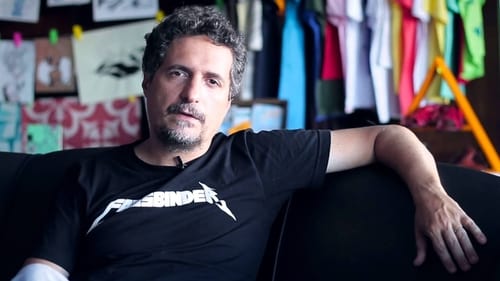
Self
Seventy critics and filmmakers discuss cinema around the conflict between the artist and the observer, the creator and the critic. Between 1998 and 2007, Kléber Mendonça Filho recorded testimonies about this relationship in Brazil, the United States and Europe, based on his experience as a critic.

Screenplay
Persian Carpet is an omnibus film produced by Iran's National Carpet Center and Farabi Cinema Foundation where 15 renowned Iranian directors contributed films on the subject of Persian carpet. Carpets are the reflection of the cultural and historical identity of Iran.

Director
Persian Carpet is an omnibus film produced by Iran's National Carpet Center and Farabi Cinema Foundation where 15 renowned Iranian directors contributed films on the subject of Persian carpet. Carpets are the reflection of the cultural and historical identity of Iran.

Director
Jafar Panahi's short film, shot with one uninterrupted long take, about siblings trying to sell a carpet in need of money.

Producer
During the 2006 World Cup qualifying match between Iran and Bahrain, numerous young women are caught and rounded up for dressing as men so they could gain access to the game. Guarded by several soldiers in a holding pen, the women attempt to keep updated on the score.

Writer
During the 2006 World Cup qualifying match between Iran and Bahrain, numerous young women are caught and rounded up for dressing as men so they could gain access to the game. Guarded by several soldiers in a holding pen, the women attempt to keep updated on the score.

Director
During the 2006 World Cup qualifying match between Iran and Bahrain, numerous young women are caught and rounded up for dressing as men so they could gain access to the game. Guarded by several soldiers in a holding pen, the women attempt to keep updated on the score.

Himself
Today Iranian cinema is one of the most highly regarded national cinemas in the world, regularly winning festival awards and critical acclaim for films which combine remarkable artistry and social relevance. Iran: A Cinematographic Revolution traces the development of this film industry, which has always been closely intertwined with the country's tumultuous political history, from the decades-long reign of Reza Shah Pahlevi and his son, the rise of Khomeini and the birth of the Islamic Republic, the seizure by militants of the U.S. Embassy in Tehran, and the devastating war with Iraq.

Editor
A young widow takes over her late husband’s truck stop café, keeping hidden in the kitchen so as not to cause a scandal in Iran’s conservative society. But her brother-in-law, out of familial obligation, wants to take her as a wife and also take over the café. Meanwhile a Greek trucker who is a frequent café customer is slowly entranced — at first by her sublime cooking ability, and then by her.

Self
Tracing the history and influence of Iranian cinema and its filmmakers.
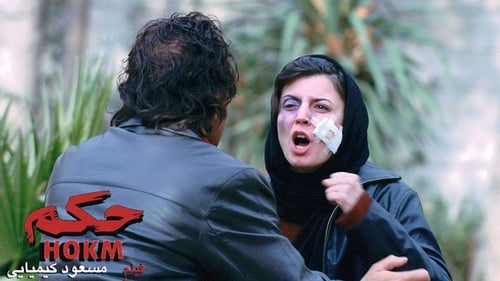
Editor
Sahand, Mohsen and Foroozande are attacking engineer Kazem's house on a rainy night and steal the house and injure him. They decide to flee Forouzande from Iran to another country. They go ...

Editor
The story of four soldiers who on a Friday go to the city with their commander. But this Friday is different and brings many troubles for them which changes them forever.

Twenty years after The Traveler was made, Kiarostami's son filmed his father as he reunited with the film's child star, now in his 30s.

Producer
For Hussein, a pizza delivery driver, the imbalance of the social system is thrown in his face wherever he turns. One day when his friend, Ali, shows him the contents of a lost purse, Hussein discovers a receipt of payment and cannot believe the large sum of money someone spent to purchase an expensive necklace. He knows that his pitiful salary will never be enough to afford such luxury. Hussein receives yet another blow when he and Ali are denied entry to an uptown jewelry store because of their appearance. His job allows him a full view of the contrast between rich and poor. He motorbikes every evening to neighborhoods he will never live in, for a closer look at what goes on behind closed doors. But one night, Hussein tastes the luxurious life, before his deep feelings of humiliation push him over the edge.

Editor
For Hussein, a pizza delivery driver, the imbalance of the social system is thrown in his face wherever he turns. One day when his friend, Ali, shows him the contents of a lost purse, Hussein discovers a receipt of payment and cannot believe the large sum of money someone spent to purchase an expensive necklace. He knows that his pitiful salary will never be enough to afford such luxury. Hussein receives yet another blow when he and Ali are denied entry to an uptown jewelry store because of their appearance. His job allows him a full view of the contrast between rich and poor. He motorbikes every evening to neighborhoods he will never live in, for a closer look at what goes on behind closed doors. But one night, Hussein tastes the luxurious life, before his deep feelings of humiliation push him over the edge.

Director
For Hussein, a pizza delivery driver, the imbalance of the social system is thrown in his face wherever he turns. One day when his friend, Ali, shows him the contents of a lost purse, Hussein discovers a receipt of payment and cannot believe the large sum of money someone spent to purchase an expensive necklace. He knows that his pitiful salary will never be enough to afford such luxury. Hussein receives yet another blow when he and Ali are denied entry to an uptown jewelry store because of their appearance. His job allows him a full view of the contrast between rich and poor. He motorbikes every evening to neighborhoods he will never live in, for a closer look at what goes on behind closed doors. But one night, Hussein tastes the luxurious life, before his deep feelings of humiliation push him over the edge.
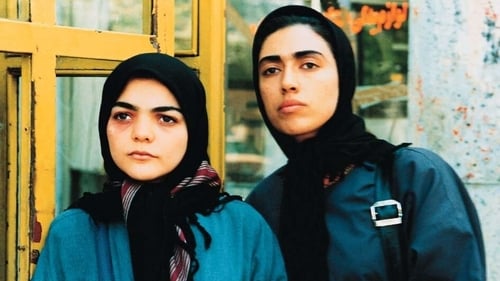
Idea
Various women struggle to function in the oppressively sexist society of contemporary Iran.

Editor
Various women struggle to function in the oppressively sexist society of contemporary Iran.

Producer
Various women struggle to function in the oppressively sexist society of contemporary Iran.

Director
Various women struggle to function in the oppressively sexist society of contemporary Iran.
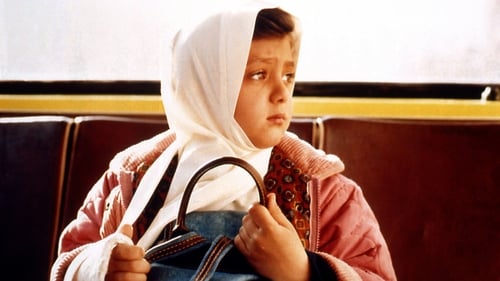
Producer
When a young girl's mother doesn't meet her after school, she tries to navigate the streets of Tehran by herself.

Editor
When a young girl's mother doesn't meet her after school, she tries to navigate the streets of Tehran by herself.

Writer
When a young girl's mother doesn't meet her after school, she tries to navigate the streets of Tehran by herself.

Director
When a young girl's mother doesn't meet her after school, she tries to navigate the streets of Tehran by herself.
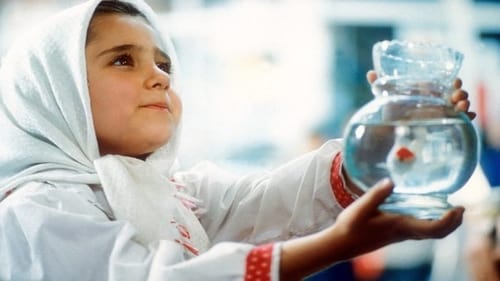
Editor
Several people try to take advantage of a little girl's innocence to hustle money her mom gave to her to buy a goldfish with.

Director
Several people try to take advantage of a little girl's innocence to hustle money her mom gave to her to buy a goldfish with.
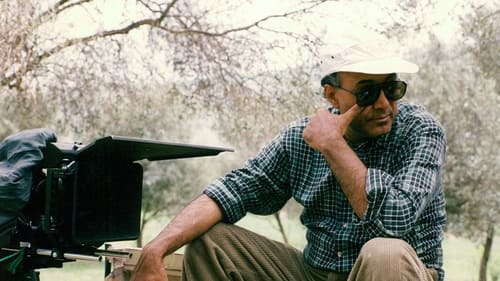
Self
A documentary by Hamideh Sharif Rad about Abbas Kiarostami's "Through the Olive Trees" (1994).
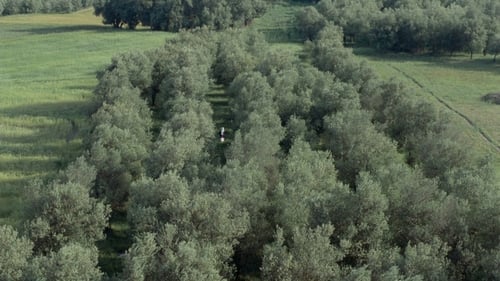
Self
Complications arise in a director's attempt to film a scene in Life, and Nothing more... (1992).

Assistant Director
Complications arise in a director's attempt to film a scene in Life, and Nothing more... (1992).

Director
This is the first fiction short movie of Panahi, who offers us his vision on what it is like to be a young boy and is considered to be an homage to Abbas Kiarostami's 'Bread and the Alley'

Director
Second arrative short starring non-professional.

Director
Panahi's graduation film is an imaginary behind-the-scenes documentary short on the making of Kambuzia Partovi's film Golnar. It focuses on the puppet maker for Partovi's film and his relationship with his puppets.

Director
Documentary about the illegal mourning tradition of head slashing in the Azerbaijan region of northern Iran. In the film, Panahi documented a mourning ceremony for the third Shi'ite Imam, Imam Hossein, where people hit their heads with knives until they bled. Panahi had to shoot in secret and the film was banned for several years.
